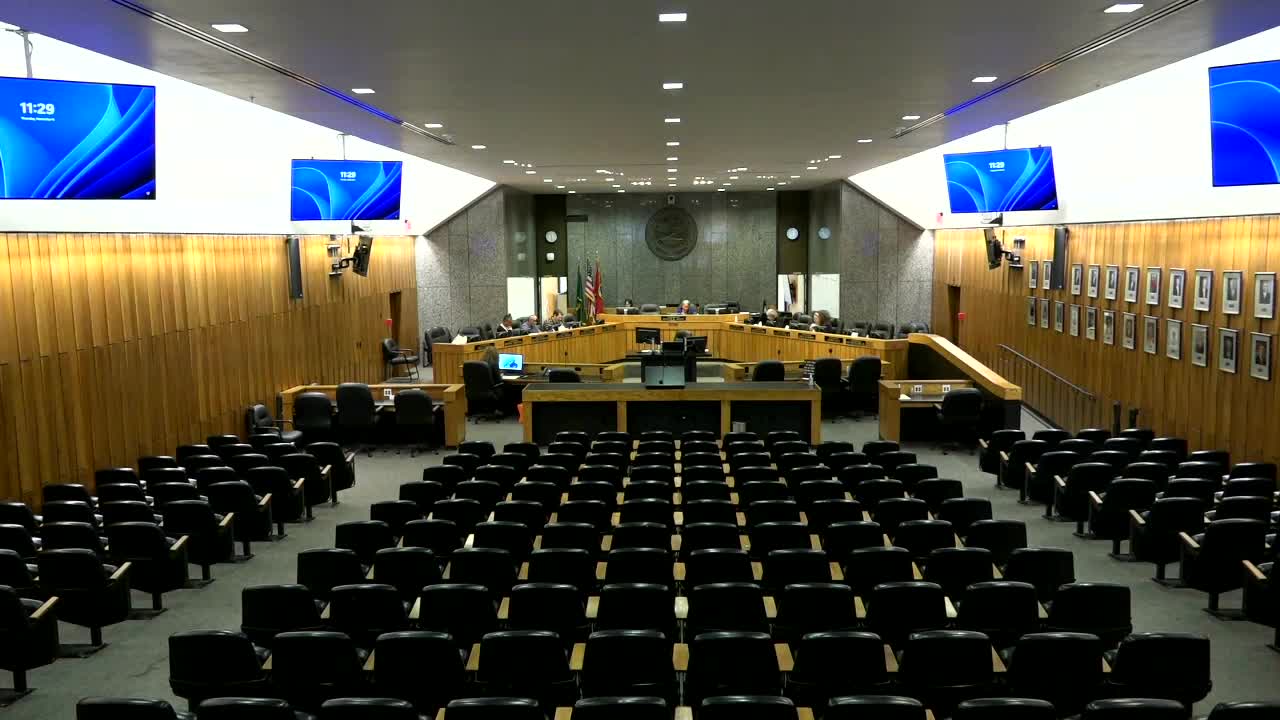Shelby County ad hoc committee advances draft PILOT reforms calling for county approval, clearer tests and clawbacks
Get AI-powered insights, summaries, and transcripts
Subscribe
Summary
Commissioner Henry Brooks, chair of the Shelby County Pilot Ad Hoc Committee, said the group will prepare ordinance language so the county attorney can review recommended reforms to PILOTs ahead of the regular Nov. 20 meeting. "We are the stewards of public money," Brooks said as he opened discussion on Nov. 6.
Commissioner Henry Brooks, chair of the Shelby County Pilot Ad Hoc Committee, said the group will prepare ordinance language so the county attorney can review recommended reforms to PILOTs ahead of the regular Nov. 20 meeting. "We are the stewards of public money," Brooks said as he opened discussion on Nov. 6.
The committee discussed three principal reforms it plans to advance: require county commission review of new PILOT agreements and any extensions; require independently verifiable pre‑approval analyses (often called a "but‑for" or benefit‑to‑cost analysis) and supporting documentation; and include enforceable callback or clawback provisions that trigger repayment or penalties when a developer fails to meet contractual obligations.
Dr. Harrison, a committee member and participant in the discussion, urged members to treat the draft list of reforms as a "menu" and prioritize short‑term items that could be enacted before the state legislature acts. "We should view this as like a menu ... and we should think about what do we wanna order off of this menu," Harrison said, arguing for a focus on provisions that are politically winnable in the near term.
On specifics, committee members agreed a minimum application package should demonstrate the minimum incentive needed (not only the developer's ask), include the buffer or benefit‑to‑cost analysis with receipts and supporting data, and document clear public benefits such as quality affordable housing or workforce development outcomes. The group also directed that relevant documents be recorded and made available to county offices for transparency and auditability.
Trustee Regina Newman, Shelby County trustee, told the panel that under current practice county offices often receive incomplete documentation and do not participate in pre‑approval reviews. "No. It's not. We have no role in it before they're approved," Newman said, describing why improved information flows and recording are priorities.
Members debated how to limit abatements. Several participants recommended a sliding scale that first preserves required education funding and then applies a graduated abatement percentage (for example, a capped starting percentage that declines over time), rather than allowing the same high percentage to be abated for the full term. Committee members cited models used in other jurisdictions and asked staff to provide draft sliding‑scale language to incorporate in the ordinance.
The committee also discussed distinguishing attraction PILOTs (to recruit new investment) from retention PILOTs (to keep existing employers). Several members favored stricter, shorter terms for retention agreements and suggested tailoring abatement formulas by company size, project type and demonstrated public benefit.
Housing quality and inspection failures were raised as a reason for stronger monitoring. Dr. Harrison described cases where inspections looked only at model units and common areas and did not identify unit‑level problems such as mold or broken grab bars. The group discussed adapting HUD’s INSPIRE/REAC unit‑level checklists into local monitoring tools to surface problems earlier.
Committee members considered, then rejected, a proposal to grant voting rights to legislative appointees on industrial development boards, citing conflicts of interest if the commission also approves PILOTs. Members also agreed to remove a proposed fixed $1,000,000 approval threshold and instead require county commission review of all new PILOTs and extensions (the committee framed this as the default recommendation to bring oversight "in house").
No formal vote was recorded during the working session; members instructed staff to prepare ordinance language and supporting materials and to forward them to the county attorney for legal review. The ad hoc committee recessed for lunch and scheduled follow‑up for the Nov. 20 meeting, when members expect to finalize recommendations for the full commission.
Clarifying details drawn from the meeting: committee members cited a local example in which a senior housing property sought $80,000 to repair elevators while the property owner reportedly derives several million dollars in annual revenue; Trustee Newman provided the committee an average Shelby County pilot amount of $98,394.27 for 2025 and noted many PILOTs run 10 years or longer. The bond counsel opinion referenced to the committee (March 17, 2025) said municipalities may delegate PILOT authority to development entities but that delegation details matter and should be reviewed by counsel.
Next steps: staff will combine the committee’s prioritized items into ordinance draft language, submit it to the assistant county attorney for review, and return recommended language to the committee at the Nov. 20 meeting for finalization before referral to the full Shelby County Commission.
